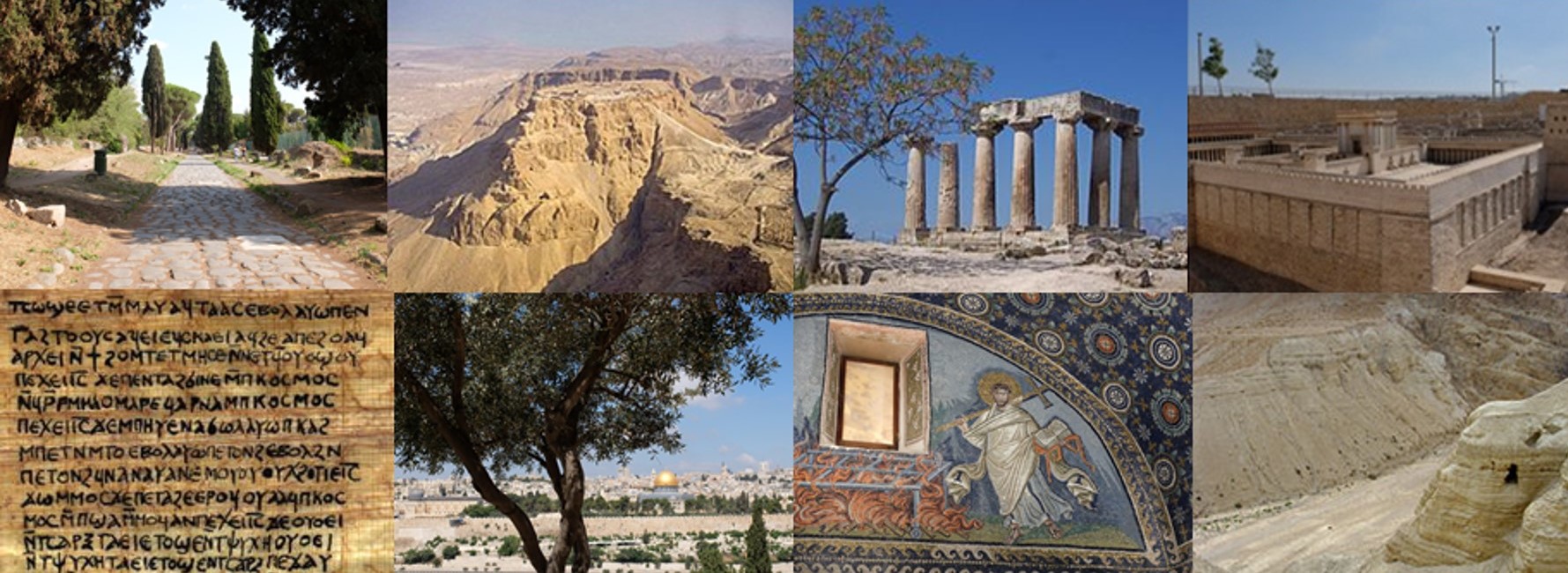Session 1: The Book of Acts and Graeco-Roman culture
Todd Thomason, University of Edinburgh, ‘When You Hear “Aeneas,” Think Aeneas as well as Rome’
This paper builds upon Michael Kochenash’s 2017 JBL article “You Can’t Hear ‘Aeneas’ without Thinking of Rome.” Kochenash establishes that Aeneas was not (as many commentators assert) a common name in Luke’s time and argues persuasively that readers of Acts 9 would naturally associate this name with the mythic hero of Vergil’s Aeneid. Given (1) the strong familial connection to the mythic Aeneas that Julius Caesar promoted, and Caesar Augustus later proliferated, and (2) the heavenly pro-Roman, pro-Augustan nature of the Aeneid, Kochenash rightly identifies Aeneas as a name that would evoke Rome’s dominion in the minds of Luke’s audience. However, after firmly establishing these symbolic associations, Kochenash does not take the next, natural step of interpreting Peter’s healing of Aeneas in light of them. I contend that Luke’s depiction of a man named Aeneas as paralyzed, unable to support even his own weight, is an intentional, symbolic reversal of the iconic portrait of Aeneas within the Roman imperial milieu – a reversal that serves Luke’s proclamation of Jesus as Kyrios and Christos.
Rubin McClain, University of Glasgow, ‘Utopian Language as Rhetoric of Pedagogy’
The early church in the book of Acts exemplifies God’s empowering presence following Pentecost. The community embraces a communal life marked by values such as sharing goods, recurring times of prayer, and meals together (Acts 2:42–47). This summary underscores the community’s significance within the narrative, typically analyzed by scholars either as a literary convention transitioning the narrative or as an allusion to ancient utopias. Despite differing perspectives, I argue for interpreting this passage as a unified whole. This summary statement intentionally alludes to utopic ideals to emphasize the community’s values and practices within a rhetorical unit of a ‘summary statement’ as articulated in Greco-Roman rhetorical handbooks. While the content is recapitulated throughout the narrative with diminishing detail, the repetition serves pedagogical purposes for the listener through mimesis or imitation. By merging the interlocking concepts of the literary depiction of utopias and rhetorical summary statements, we discover the author’s pedagogical purposes. The repetition of the ideal community encourages listeners and recipient communities to imitate the early church’s vision for life and practice.
Session 2: Book review
Book: Monique Cuany, Proclaiming the Kerygma in Athens: the argument of Acts 17:16-34 in light of the Epicurean and Stoic debates about piety and divine images in early post-Hellenistic times
Respondents: Loveday Alexander, University of Sheffield and University of Manchester, and Kavin Rowe, Duke University
Book abstract: Two major questions still divide and puzzle commentators with respect to Paul’s speech in Athens (Acts 17:16-34): What is the relationship between the speech’s message and Greek philosophy? And what is the link between the speech’s main part and its ‘Christian conclusion’? After analysing the debates on piety and divine images between Stoic and Epicurean philosophers in early post-Hellenistic times, this book presents a new interpretation of the argument of Paul’s famous speech in light of this religious and philosophical context. It argues that far from being an unrelated ‘appendix’ with little relationship to the rest of the speech, the Christological conclusion of the discourse represents the very climax of its argument. It also suggests that this argument would have been much more understandable by a Greek audience than has been thought in the past. The study then concludes with suggestions for our evaluation of Luke’s attitude towards Graeco-Roman culture and the apologetic purpose of the book of Acts.
Session 3: Exegetical studies on Acts
Ellen Howard, Ludwig-Maximilians-Universität München ‘The Gospel in Motion: A Narratological Analysis of Acts 22:22-29’
This paper provides a narratological analysis of the episode in Acts where Paul uses his Roman citizenship to avoid a beating in Jerusalem. Luke’s detailed portrayal of this event is intentional as it holds significant rhetorical importance within the broader context of Luke/Acts. This incident, set against the backdrop of racial tensions between Jews and Gentiles, underscores key themes in Acts such as the acceptance of the gospel among Gentiles and the spread of the gospel ‘to the ends of the earth’. Luke’s narrative structure is carefully crafted, with Paul’s citizenship playing a crucial role in his protection and eventual mission to Rome. This analysis situates the passage within the larger narrative discourse, suggesting that Luke uses Paul’s Roman identity not only to advance the plot but also to emphasize the key themes and purposes of Luke/Acts as a whole.
Keith Pinckney, University of St. Andrews, ‘Re-Narrating Israel’s Wilderness Story in Acts 7:39-46: A comparison in early Jewish Exegesis’
Stephen’s speech in Acts 7 is a response to an accusation made of him speaking against the temple and the law of Moses. Stephen’s point is to highlight that this isn’t the case, by providing a rebuttal using Israel’s scriptures. This paper analyzes a small section of the speech Acts 7:37-43. It is not self-evident why/how this pericope uses Deut. 18:15, LXX Num 14:3, Ex. 32:1, 23, Amos 5:25-27 to refute the opponents. Rather than haphazardly citing verses to meet rhetorical goals, this paper argues that Stephen makes exegetical argument(s) in ways that are like what we find elsewhere in early Judaism. These include techniques like allusion, omission, addition, compression, and re-narration. When compared with other early Jewish texts such as MT Jer. 42-44, 4Q175, CD 3, 5-9, LAB 10:7, 12:1-10, Ant.2.12.4, 3.79-99 ,1 Cor. 10 amidst both their similarities and differences we see that the author of Acts is best situated in his reuse of Israel’s scriptures within early Jewish exegetical practices, of these same texts, to highlight the rebellion of his contemporaries.

